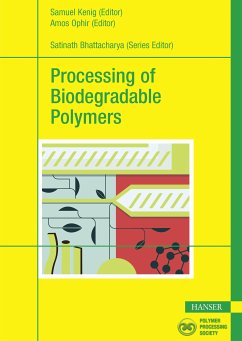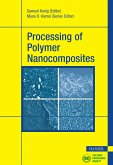Biodegradable polymers (BDPs) based on renewable sources have been drawing scientific as well as industrial attention due to their potential to replace fossil derived polymers (FDPs) for a large number of applications. Furthermore, BDPs introduce the viability of bio-degradation at the end of their life cycle, thus reducing the environmental impact of most FDPs. This book covers the basic properties of BDPs according to their classifications, the rheology of BDPs and their blends, and their numerous applications, with an emphasis on processing: As BDPs possess attractive attributes compared to FDPs (which is discussed in the book), their processing has been investigated using conventional processing technologies. However, BDPs are sensitive to the processing conditions due to their composition, which is tuned to bio-degradation. Hence, special attention has been directed to minimize the in-process degradation and enhance their final processed properties. To remedy some of the BDP processing shortcomings, special additives, fillers, and blends have been incorporated and developed with minimal effect on the BDPs' bio-degradation rate. All of these aspects of BDP processing are considered in this book, including their characteristics in extrusion, injection molding, thermoforming, blow molding, and 3D printing, as well as the processing of recycled BDPs.
Dieser Download kann aus rechtlichen Gründen nur mit Rechnungsadresse in A, D, L ausgeliefert werden.









